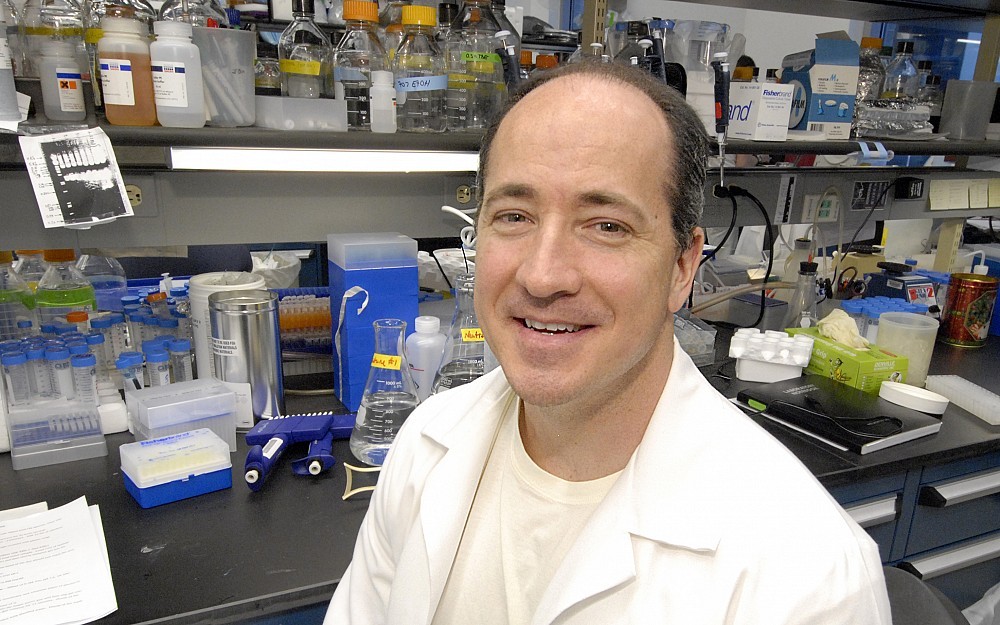
Scientists Identify Key Molecular Regulator of Cardiac Hypertrophy
Scientists have identified a key molecular regulator of cardiac hypertrophy (enlargement of the heart) that may provide a therapeutic target for a major risk factor of heart failure and early death.
The researchers report in an upcoming edition of Nature Medicine that over-expression of the protein CIB1 (also called calmyrin) triggers biochemical processes that lead to cardiac hypertrophy.
This includes activating the enzyme calcineurin, a key biochemical component in the normal development and function of heart cells. The study was posted online July 18 in advance of publication.
"Hypertrophic heart disease is a leading health problem in Western countries. Our data clearly show that CIB1 is required for permitting activation of calcineurin during maladaptive cardiac hypertrophy, said Jeffery Molkentin, PhD, lead investigator and a researcher in the division of Molecular Cardiovascular Biology at Cincinnati Childrens Hospital Medical Center and a Howard Hughes Medical Institute investigator.
"This suggests a new strategy for treating hypertrophic heart disease through inhibition of CIB1 or its interaction with calcineurin.
Molkentin also is a professor of pediatrics at the UC College of Medicine. Pre-existing cardiac hypertrophy from chronic health conditions like hypertension (high blood pressure) or a history of heart attacks is a major risk factor for heart failure.
After these conditions damage the heart, heart muscle cells called cardiomyocytes enlarge as the body tries to respond and compensate, increasing the organs size. The researchers first set out to identify previously unknown regulators of cardiomyocyte growth during hypertrophy. This was done through genetic analysis of neonatal rat heart cells cultured in the laboratory and programmed to become hypertrophic.
Genetic screens detected elevated levels of CIB1 which helps mediate biochemical processes in the plasma membranes of various mouse and human tissues, especially the heart and identified the protein as a prime candidate.
Additional analysis of hypertrophied mouse and human heart tissue also detected elevated levels of CIB1 in the sarcolemma, the thin plasma membrane surrounding heart muscle fiber that is important to receiving and serving as a conductor of stimuli. In experiments designed to monitor the levels, function and molecular interactions of CIB1 during heart injury in living organisms, the scientists conducted hypertension simulation tests on mice.
Mice were generated that either lack the CIB1 gene or that over express CIB1 in the heart. Mice with over-expressed cardiac-specific CIB1 exhibited pronounced cardiac hypertrophy and dysfunction with hypertension stimulation, but mice lacking the CIB1 gene showed protection from hypertrophy and dysfunction.
Although the study points to CIB1 and its interaction with calcineurin as possible therapeutic targets, Molkentin cautioned that extensive additional research is needed before the data becomes clinically applicable to patients.
The research was supported by grants from the National Institutes of Health, the Howard Hughes Medical Institute, the Foundation Leducq and Deutsche Forschungsgemeinschaft.
First author on the study was Joerg Heineke of the Medizinische Hochschule Hannover, Klinik fur Kardiologie und Angiologie, Cluster of Excellence Rebirth, Hannover, Germany. Also collaborating on the study was the department of biochemistry and biophysics, School of Medicine, University of North Carolina at Chapel Hill, NC.

Jeffery Molkentin, PhD, a professor of pediatrics at UC and Howard Hughes Medical Institute investigator
Related Stories
9 Things OB/GYNs want women to know about early menopause
January 6, 2025
Menopause doesn't typically happen until women reach their late 40s or 50s, but some experience early onset menopause. So, Well+Good put together nine things experts want women to know about why early menopause happens, if the treatment options are any different from regular menopause, and how it affects overall health. Michael Thomas, MD, department chair and OB/GYN at the University of Cincinnati College of Medicine, offered his expertise for the article.
UC experts share holiday survival tips in local news report
January 6, 2025
One poor choice could lead to lasting health effects. That's why experts at the University of Cincinnati College of Medicine offered advice to keep everyone safe and avoid an emergency during the holiday season. From food poisoning to children swallowing a button battery, there are a lot of things that can go wrong.
Why is anxiety worse at night?
January 6, 2025
The University of Cincinnati's Jeffrey Strawn was featured in a TIME article discussing why anxiety can be worse at night and tips to address nighttime anxiety.
